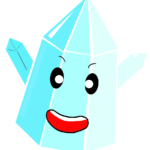#e12 Skills to nurture what you love to do

Liking is a kind of energy
I once wrote an article titled “Liking is something that grows.
So, does it just grow on its own? No, of course not.
It takes a certain amount of energy to nurture it.
I think the same can be said for “love” as for “like.
True love is sometimes described as “eternal,” but I think it is more accurate to say that love is ephemeral, rather than the ideal that we want it to be so.
Love” is energy like the light and heat emitted by the sun, and the amount of ‘love energy’ is determined by the output.
Like is the same.
This “like energy” is transmitted by unique interests and passions, and it has a unique gravity.
If a person feels a strong passion for music, that passion is an energy expression unique to that person, and something like gravity acts between that person and “music.
And eventually, like the earth and the moon, once their orbits are set, they keep going around and around.
Just as Jupiter, with its powerful gravity, has dozens of satellites, the gravity of a person who “loves music” attracts friends.
Therefore, it can be said that the friends gathered as a result of a person’s energy inclination are “like a solar system unique to that person.
The size of that formed solar system will vary depending on the person’s energy.
Also, one day you will get “bored” with what you like to do.
In other words, there will be a decrease in gravity to maintain.
From there, do you do more research and strengthen the gravity?
Or do we throw it out and look for something else?
Each will be different.
I think that people who can do research are energetic people.
Or someone who has the skills to maintain their like.
Childlike curiosity and the importance of hobbies
The “childlike mind” plays an important role in nurturing loving energy.
The innocent curiosity of childhood allows us to see the world with fresh eyes and provides an opportunity to find new interests.
Modern education does not nurture this childlike spirit, but on the contrary tries to crush it.
For example, in my generation, insect collecting was one of the hobbies of boys.
And before summer vacation, “insect collecting kits” were piled up in bookstores. Also, plastic models were the king of hobbies.
Today, even if you want to collect insects, you are told not to go into the mountains, and plastic models are shunned because cemedine is not good for you, etc.
Fishing is also forbidden in some families because of the danger of water accidents.
In parks, kicking a ball or playing catch is also forbidden.
Ultimately, today’s children have no other choice but to play games at home.
This makes it difficult for them to find hobbies or learn the joys of nurturing their likes.
In today’s society, childlike curiosity must protect itself, or else it will be destroyed.
Strategies for maintaining childlike curiosity
- Keep an open mind to new experiences: Try new things in your daily life,
It is important to keep an open mind to different experiences.
This will increase your chances of discovering new hobbies and passions. - Return to past hobbies: by re-engaging in hobbies and activities you enjoyed as a child, may help you regain lost childhood memories.
- Deepen your connection to nature: Spending time in nature can be calming and promote creative thinking, calms the mind and encourages creative thinking.
See and touch many things, and have the courage to step out in pure innocence, no matter how old you are.
Unless you take the first step, you will remain a hobbyless person.
Some people think of stepping out as a risk, but if you think of every failure and success as a return, you can comfortably start anything.
Skills to nurture what you love
The following skills are helpful in cultivating what you love.
- Ongoing exploration: Continuous learning and practice are necessary to gain a deep understanding and proficiency in what you love.
- Reflection and self-assessment: Regularly evaluating one’s progress and setting new goals promotes growth.
- Sharing and community: Interaction with others who share similar interests provides new perspectives and opportunities to deepen learning.
Today, you can connect with people of all colors, regardless of age or gender, and across location and language barriers.
Summary
I believe that the art of cultivating what we love means more than simply pursuing our hobbies and passions.
As mentioned above, if we think of our community as one solar system, increasing how large and how many planets we have in that solar system seems like a lot of fun.
It is a journey of self-discovery.
It is a connection between one’s own inner energy and others, a link between the latent and the manifest.
Then to touch and share with someone from another solar system is like space travel. I think it would be a very exciting experience.











